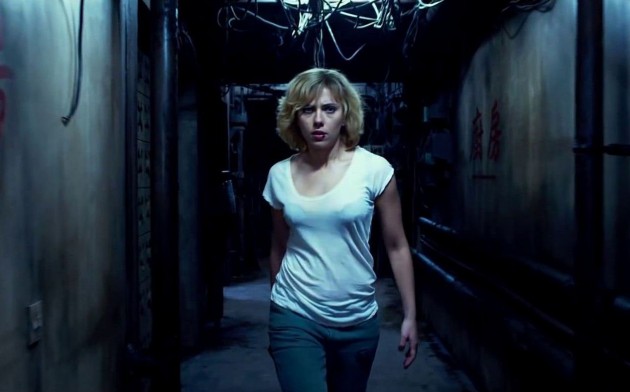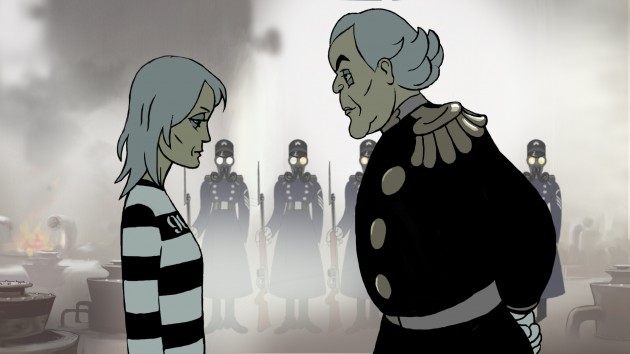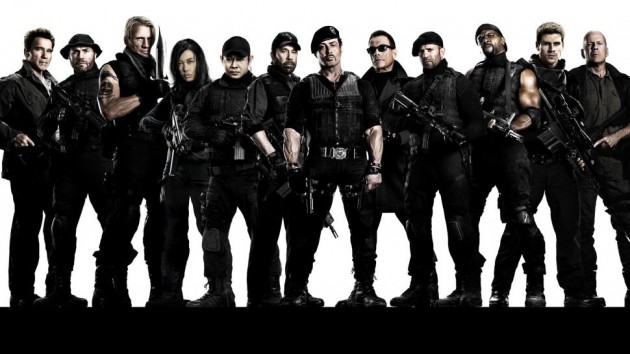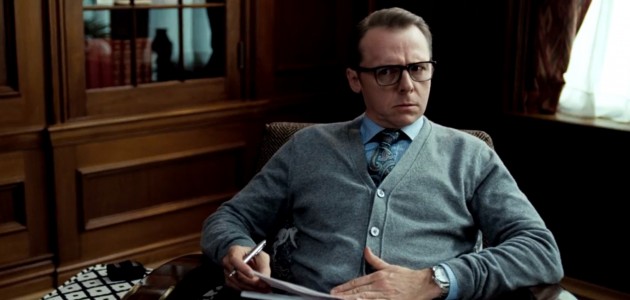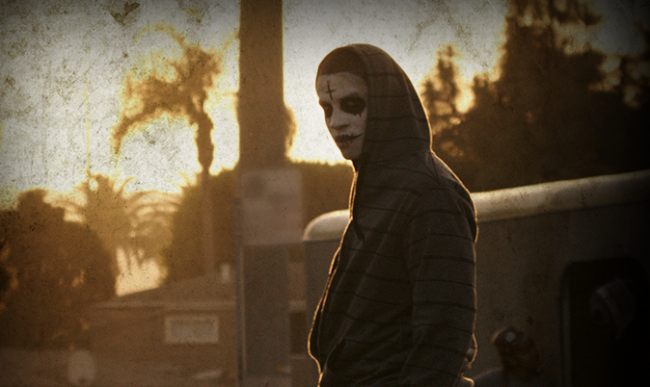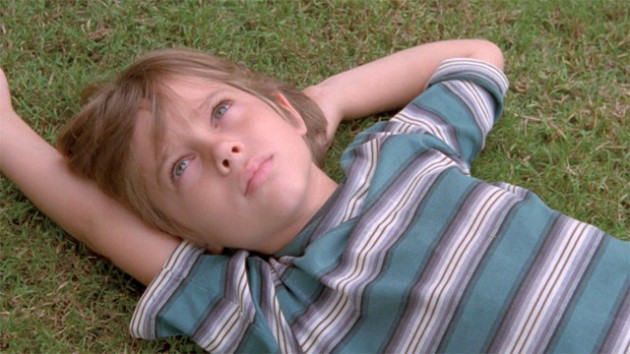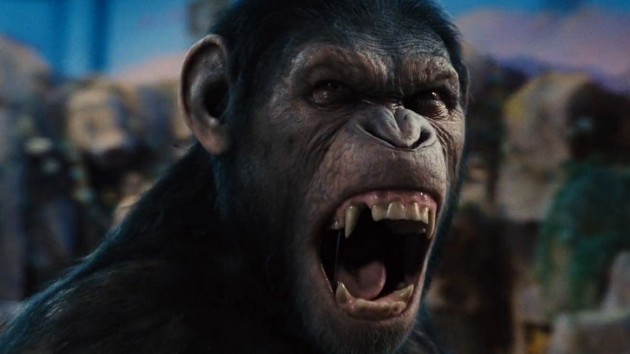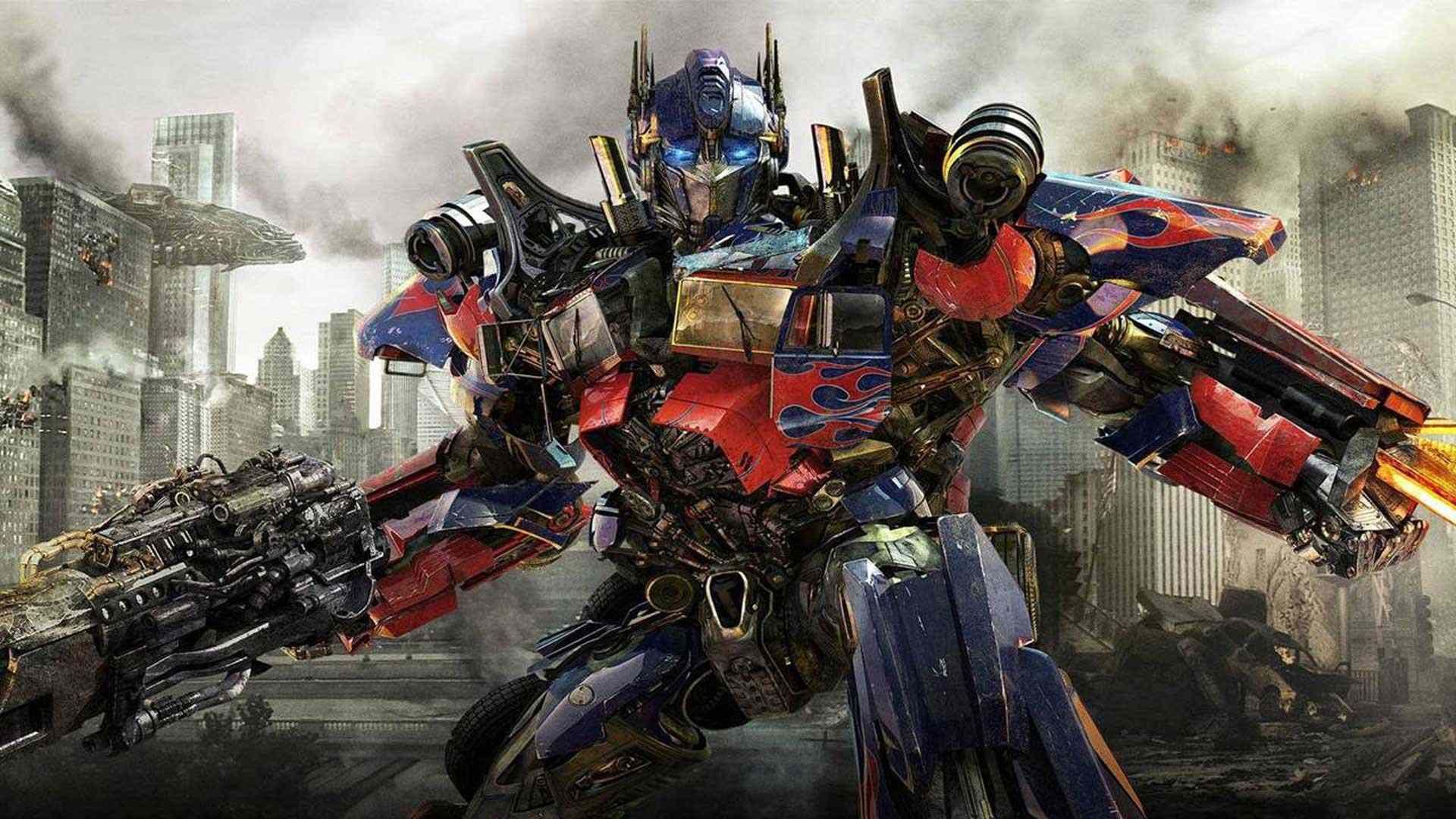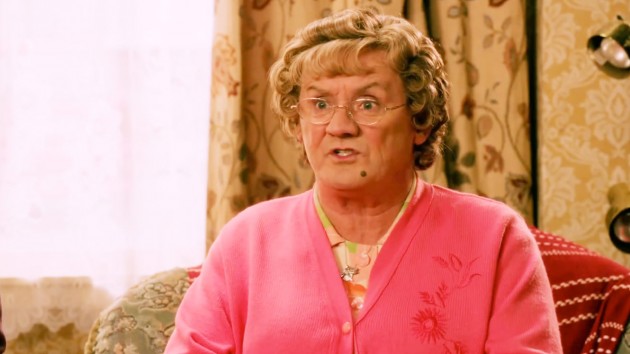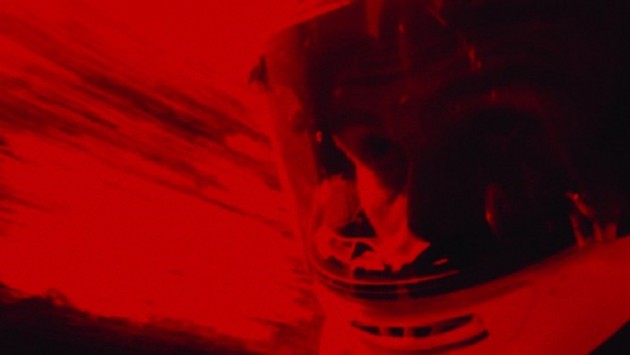After honey-voiced hardware in Her, a blank-faced alien stalker in Under Her Skin and a lycra-skinned super spy in Captain America: Winter Soldier, Scarlett Johansson continues her trend of playing characters who are Not Like Us. In Lucy she is the titular miniskirt-hugging party girl, who gets kidnapped by scowling Koreans and ingests a super-drug that transforms her into a reality-bending superwoman. It’s also another in a long line of unconventional and unstable heroines from Parisian writer-director Buc Lesson, who gained success with the memorably offbeat action of Nikita, Leon: The Professional and The Fifth Element, as well as spearheading the Liam Neeson renaissance with the gruff, workmanlike Taken series. Lucy is a jumbled…
-
-
As cut-throat a business as Hollywood may be, it’s inevitably a comedown from the horrible intensities of life in a warzone. The visually diverting but meandering The Congress is Ari Folman’s follow-up to 2009’s celebrated Waltz With Bashir, an animated documentary about former soldier Folman’s experiences during the 1982 Israel-Lebanon conflict. The Congress, inspired by Solaris author Stanislaw Lem’s 1971 science fiction novel The Futurological Congress, is an animated/live action blend which riffs on the movie industry’s superficial youth culture and delivers familiar dystopic warnings about society’s obsession with fantastical inoculations against the grim truths of real life. Robin Wright…
-
The Expendables 3, the latest in Hollywood’s action-star pension plan, confirms the series’ status as the modern action genre’s biggest missed opportunity. Star and story producer Sylvester Stallone has mined his rolodex for a beefed-up (emphasis on the beef) punch-a-thon for him and his bulging buddies and while there are some welcome roster additions, Stallone and new director Patrick Hughes remain unable to dream up material worthy of the star wattage on show. We’re three films deep, and the franchise has yet to deliver a single memorable set-piece. And that’s kind of a problem. At least the films have finally…
-
Soon into Hector and the Search for Happiness, the baffling new leading man vehicle for Simon Pegg from director Peter Chelsom (The Hannah Montana Movie), I realised why the ‘dramedic’ inertia felt so familiar. Hector has much in common with last year’s The Secret Life of Walter Mitty, a Ben Stiller film which was remarkable for recreating perfectly in cinematic form the polished emptiness of a high-end credit card commercial. Both are adaptations of a literary work (here, a popular 2002 novel by Francois Lelord), both use a well-known comic actor for a slightly straighter role, and both are about…
-
2011’s The Purge, written and directed by relatively green film-maker James DeMonaco, was a concept in search of a movie. The ropey home invasion flick was built around an irresistibly trashy hook: in less than a decade from now, America is a sort of Tea Party NRA wonderland where, for one night a year, violent crime is legal. Murder is not just allowed, but promoted as a civil duty, all the name of spiritual self-renewal. It keeps the crime and population numbers down and the welfare rolls under control (dead people don’t claim the dole). The low-budget but decent-grossing film…
-
Richard Linklater’s Boyhood is both an aesthetic and logistical triumph. That it exists at all is a victory of sorts, considering the (much-hyped) eccentricities of its production. The film is an impressionistic time-lapse of human development, charting the growth of a young Texan boy from primary-school to college age and the evolution of his surrounding family. To achieve an honest chronicle of this temporal stutter effect, Linklater returned to the small troupe of actors every year or so for eleven years to shoot a handful of scenes, guessing ahead and developing the narrative on the fly. In a neat folding…
-
The first of this Planet of the Apes trilogy, 2011’s Rise of the Planet of the Apes, benefited enormously from the goodwill produced by exceeded expectations. The original series of films, based on Pierre Boulle’s 1963 sci-fi novel, existed in the public mind primarily as a vague collection of B-movie twists and lines of dialogue, ripe for sly parody. The first attempt at a modern remake, Tim Burton’s 2001 film, was muddled and saddled with an obtuse twist ending. There was room to go further. Rise, in which James Franco’s scientist raises the hyper-intelligent ape named Caesar and unwittingly develops…
-
That the Transformers films, brought to us jointly by Hasbro’s accountancy department and the jock-bro personality of Michael Bay, are bad is nearly common knowledge. But few Hollywood franchises have so aggressively courted the kind of sublime awfulness to which audiences have been subjected every second summer or so in recent memory. At the beginning of Age of Extinction, the fourth in the franchise and scripted by series regular Ehren Kruger, Optimus Prime is introduced hiding out in an abandoned movie theatre, where the old-timer owner bemoans the state of modern cinema. “It’s all sequels and reboots!” he complains, a…
-
It is hard to imagine a less fashionable sitcom than Mrs. Brown’s Boys, Brendan O’Carroll’s cash-spewing granny-drag comedy in which he plays the foul-mouthed matriarch at its centre. Based on the act O’Carroll and various family members developed on stage over years of touring, and co-developed by RTE and BBC Scotland, the show is powered by the comic appeal of a stocky man in a dinner lady’s vest pottering about sets, mugging for the audience, laughing at his own jokes and spitting out ‘fecks’ like punctuation. Trading on shoe-worn sitcom set-ups, Mammy-knows-best nostalgia and gags so broad a rookie stormtrooper…
-
For those of us only superficially aware of the annual TT road racing season, an internationally respected series of two-wheel races which run in Northern Ireland and the Isle of Man over the spring and summer months, Richard de Aragues’ 2011 film TT3D: Closer to the Edge was a fascinating introduction to the daredevil sport. Road, from local film-makers Diarmuid Lavery and Michael Hewitt of Doubleband Films, serves as a more thematically rich follow-up or companion piece. Narrower in scope and sharper in feeling with its focus on the story of Ballymoney’s Dunlop racing dynasty, the documentary charts the road…

